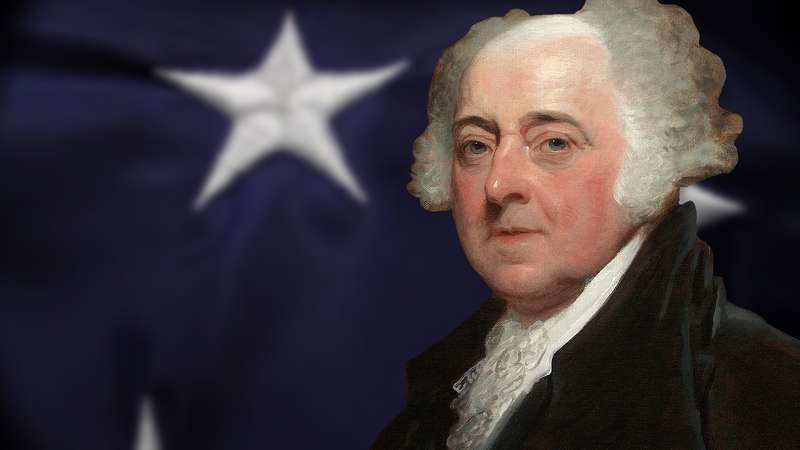About Publications Library Archives
cthl.org

Preserving American Heritage & History

Preserving American Heritage & History


John Adams, Jr., the eldest of three sons, was born on October 30, 1735 (October 19, 1735 Old Style, Julian calendar), in what is now Quincy, Massachusetts (then called the “north precinct” of Braintree, Massachusetts), to John Adams, Sr., and Susanna Boylston Adams. The location of Adams’s birth is now part of Adams National Historical Park. His father, also named John (1691–1761), was a fifth-generation descendant of Henry Adams, who emigrated from Braintree, England to Massachusetts Bay Colony in about 1638. He is descended from a Welsh male line called Ap Adam. His father was a farmer, a Congregationalist (that is, Puritan) deacon, a lieutenant in the militia and a selectman, or town councilman, who supervised schools and roads. His mother, Susanna Boylston Adams, was a descendant of the Boylstons of Brookline.
Adams was born to a modest family, but he felt acutely the responsibility of living up to his family heritage: the founding generation of Puritans, who came to the American wilderness in the 1630s and established colonial presence in America. The Puritans of the great migration “believed they lived in the Bible. England under the Stuarts was Egypt; they were Israel fleeing …to establish a refuge for godliness, a city upon a hill.” By the time of John Adams’s birth in 1735, Puritan tenets such as predestination were no longer as widely accepted, and many of their stricter practices had mellowed with time, but John Adams “considered them bearers of freedom, a cause that still had a holy urgency.” It was a value system he believed in, and a heroic model he wished to live up to.
Young Adams went to Harvard College at age sixteen in 1751. His father expected him to become a minister, but Adams had doubts. After graduating in 1755, he taught school for a few years in Worcester, allowing himself time to think about his career choice. After much reflection, he decided to become a lawyer and studied law in the office of James Putnam, a prominent lawyer in Worcester. In 1758, Adams was admitted to the bar. From an early age, he developed the habit of writing descriptions of events and impressions of men which are scattered through his diary. He put the skill to good use as a lawyer, often recording cases he observed so that he could study and reflect upon them. His report of the 1761 argument of James Otis in the superior court of Massachusetts as to the legality of Writs of Assistance is a good example. Otis’s argument inspired Adams with zeal for the cause of the American colonies.
On October 25, 1764, five days before his 29th birthday, Adams married Abigail Smith (1744–1818), his third cousin and the daughter of a Congregational minister, Rev. William Smith, at Weymouth, Massachusetts. Their children were Abigail (1765–1813), future president John Quincy (1767–1848), Susanna (1768–1770); Charles (1770–1800), Thomas Boylston (1772–1832), and the stillborn Elizabeth (1777).
Adams was not a popular leader like his second cousin, Samuel Adams. Instead, his influence emerged through his work as a constitutional lawyer and his intense analysis of historical examples, together with his thorough knowledge of the law and his dedication to the principles of republicanism. Adams often found his inborn contentiousness to be a constraint in his political career.